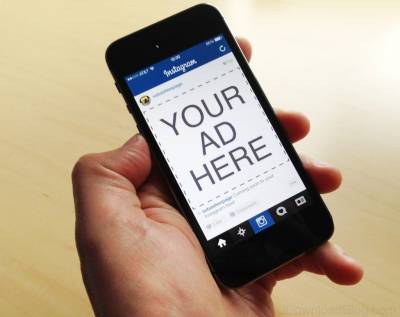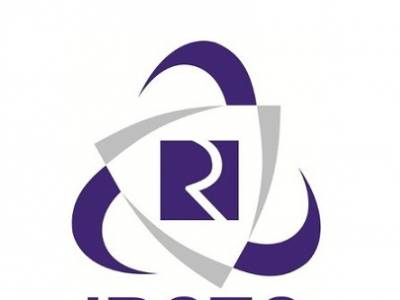Ads served up: How much personalisation is too much before becoming intrusive?
How often have you countered unwanted ads while using mobile applications? Do you ever find the option to opt out of these obnoxious ads? These ads can often be seen on websites and applications that have high traffic.
One might recall a recent incident when an angry Twitter user (@anandk2012) angrily complained on IRCTC’s official Twitter handle, asking them look into embarrassing and irritating ads that were featured on their mobile applications.
Obscene and vulgar ads are very frequently appearing on the IRCTC ticket booking app. This is very embarrassing and irritating @RailMinIndia @IRCTCofficial @PiyushGoyalOffc kindly look into. pic.twitter.com/nb3BmbztUt
— Anand Kumar (@anandk2012) May 29, 2019
The IRCTC responded with an incisive response to the complaint and soon Twitter’s troll army mocked the Twitter user into oblivion.
Read More; How IRCTC turned a complaint against obscene ads into a funny digital moment
Irctc uses Googles ad serving tool ADX for serving ads.These ads uses cookies to target the user. Based on user history and browsing behaviour ads are shown. Pl clean and delete all browser cookies and history to avoid such ads .
— Indian Railways Seva (@RailwaySeva) May 29, 2019
-IRCTC Official
Often the users of these platforms are unaware of the level of personalisation they are subjected to, as most of us do not read the fine print when it comes to usage and privacy policies. The puzzling factor is that these ads might often be seen alongside perfectly ordinary ads from brands such as Flipkart, which are mostly about some sales promotion or the other. This system is designed to attract the potential customers.
However, these ads are a menace. Up to a certain level personalisation can be constructive to both users and advertisers, however, beyond that level it is not only the net that is a victim of these ads, but also the applications that we use every day. These applications are tracking our online behavior, but it is difficult to understand the scope of one’s behaviour that they are able to track.
Should Google and other programmatic ad serving platforms be more sensitive to the privacy of consumers who view such ads or perhaps should platforms have a better understanding of and perhaps restrict certain ads from being served on their platform?
According to Abhishek Shah, CEO, CommerceX, “There is both an upside and a downside to any new technology, in this case, as the IRCTC pointed out its purely retargeting ads based on the user’s own browsing behaviour, however IRCTC can always opt out or block certain categories of ads from their end via Google settings as a responsible publisher. That said, users here also have the option to browse such sensitive personal sessions via incognito mode so that the retargeting cookies wouldn’t be saved. Overall, this shows that while technology is a gamechanger for all, there is some lack of awareness on its productive application, which needs to be propagated by these enablers, viz. Google in this case!”
Ashish Shah, Founder & CEO, Vertoz elaborated, "Today, successful marketing is all about providing enriched experiences to customers. Adding a touch of personalization is a way for brands to improve their customers’ experience with the brand. With personalized ads, brands can provide their customers with a better browsing experience by ensuring that their customers are not irked off by irrelevant ads incessantly showing up throughout the webpage while browsing through the content. Not just this, personalized ads indeed add value to the browsing experience through their high relevance."
Some Twitter users also shared sympathies and concerns.
Paavam. He still has a point. Whatever he is seeing in his private space is his choice. When he is booking irctc it could be with someone in his family. He shouldn’t be seeing those ads coz of Wat he sees in private time. Ithokke aare paranju manassilakkan
— Bangalore Is Great (@BangaloreIs) May 29, 2019
कामोतà¥à¤¤à¥‡à¤œà¤¨à¤¾ कम करिà¤à¥¤ Ads अपने आप बंद हो जाà¤à¤à¤—े।
And yes, deleting cookies and browsing history won’t help as google uses personal and targeted ads. Means your ‘uttejana’ is saved in googles server and they have marked you as ‘tharki’.
So, they will continue to display 2 piece ads
As IRCTC media handler mentioned, they use cookies and browser history to serve ads, and also your browsing behaviour. Nothing to be worried about it because Adsense ads sometimes doesn't even require any data to show ads, such ads get randomly displayed.
Shah added, "It is necessary for publishers to avoid brand-unsafe associations and maintain a level of safety with respect to the type of ads being served on their website. Brand-safety is a crucial aspect of digital advertising and must not be overlooked. It involves filtering out any ads that involve brand-unsafe content. This includes ads with content like adult content, extremist content, content related to narcotics, terrorism, hate speeches, violence and so on, which is not in line with the publishers’ content. In order to avoid any such situations, publishers must partner with platforms that provide brand-safety mechanisms which help to filter out such ads."
A user pointed out that it might not be entirely appropriate for a government app to feature such ads.
If govt.. websites are like this, then what about pvt.websites???
— rajesh velamarthi (@r4j5522) May 29, 2019
These type vulgar images and videos will spoil the mind of person. Government should take a proper action on bad images🕵ï¸ðŸ•µï¸
"Picture a scenario wherein a teenage kid within family shops or searches online for innerwear. But, based on the browsing history, innerwear ads are displayed to her parents or grandparents while they are browsing. It is naturally not justified for them to see such ads. With the help of techniques like whitelisting and blacklisting, or with the help of brand-safety partners, publishers can ensure that such ads are blocked out under any condition.
Being a government-operated website, the audiences on websites like IRCTC are cultured. They would not appreciate brand-unsafe ads popping-up during their browsing sessions. Thus, it is incumbent upon such publishers to ensure brand-safety by choosing the right monetization partners" concluded Shah.
Whatever may be the case, it is clear that users have very little control over the level of ‘personalisation’ they are subjected to which may not bode well for advertisers as governments and regulatory bodies contemplate data regulation acts such as GDPR.





















Share
Facebook
YouTube
Tweet
Twitter
LinkedIn